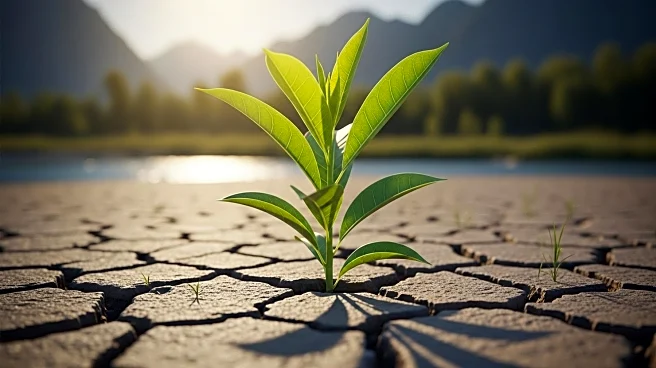What's Happening?
Optimism is emerging as a crucial element in conservation efforts, as demonstrated by the recovery of the mountain gorilla population in Africa. Despite challenges like poaching and civil conflict, dedicated efforts by rangers, communities, and governments have led to a gradual increase in gorilla numbers. This success story underscores the importance of optimism as a method rather than a mere sentiment, driving action and fostering narratives that inspire further conservation efforts. The approach involves strategic optimism, focusing on achievable goals and leveraging community involvement to create sustainable environmental practices.
Why It's Important?
The role of optimism in conservation is significant as it counters the often paralyzing effects of environmental doom and gloom. By focusing on positive outcomes and actionable steps, optimism can mobilize communities and stakeholders to engage in conservation efforts. This mindset not only supports biodiversity but also strengthens community resilience and cooperation. The success of conservation projects like the mountain gorilla recovery serves as a model for other environmental initiatives, demonstrating that disciplined optimism can lead to tangible improvements in ecological health and sustainability.
Beyond the Headlines
Optimism in conservation also influences the internal culture of organizations, encouraging innovation and long-term commitment to environmental goals. It challenges the narrative of inevitable decline, promoting a proactive approach to environmental stewardship. This perspective can lead to more effective policy-making and resource allocation, ensuring that conservation efforts are both impactful and sustainable. By fostering a culture of hope and action, optimism can transform conservation from a reactive to a proactive discipline, ultimately contributing to a more sustainable future.









